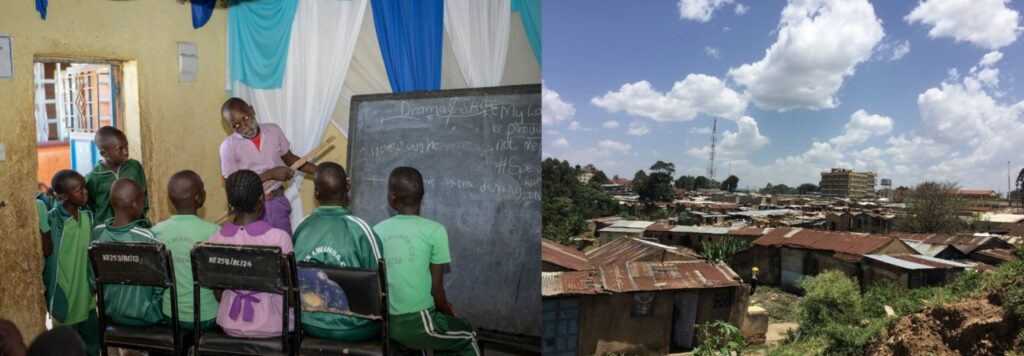Gloria Anne Achieng’s life was shaped by an upbringing in the slums fraught with hardship – domestic violence, the loss of her mother to suicide, and her own battles with depression and anxiety. With no clear path forward, she was on the verge of dropping out of school, until a supportive faculty helped her regain her footing. Today, as a psychologist, Gloria uses her experiences to help children in Western Kenya who have found themselves in conflict with the law.
Read on to learn more about her remarkable journey:
By Gloria Anne Achieng
The Chapati Festival: A Window into the challenges
I joined the Kisumu Children’s Remand Home for the “Chapati” Festival, an annual event where people come together to cook, play games, and share meals with children from different institutions.
A 16-Year-Old’s Silent Cry for Help
The event was fun, with entertainment and people cooking together and sharing laughs, but throughout, a 16-year-old boy stood out to me. Juma (name changed) rarely engaged with the other children. He sat in a corner where the water taps were located, watching other children having fun. Sometimes, I saw him stand up, dance a little, and then sit down almost immediately.
Building Trust
When we started sharing food, I went and sat with him and started a conversation about his day. Huma kept quiet. I sat there in silence, and we ate together. That is when he asked me if I understood Dholuo, a language spoken by the tribe from the Nyanza region, and I nodded.
Fear of the Future
He shared with me that the event was good, but he was not settled. I asked him why, and he told me that he was close to being released back into the community but was afraid of what awaited him back home. He shared that was arrested for being in a relationship with his classmate. At the time of the arrest, he was arrested for defiling his girlfriend of the same age because it is believed that the girl child was the weaker gender and, therefore, could not consent.
Psychological Support
He was worried about re-entering his community, that he would be known as the boy who defiles girls, and people would not want to associate with him. He said that he is having issues focusing on his rehabilitation because his mind constantly drifts to the time he will be released from the facility. Juma also stated that because of shame his family did not visit him, and he was generally afraid of returning home. I asked him about counselling, and he told me that they do not receive it at the facility, and if the social workers ask for their information, it could be used against them in court, so they do not open up.
Offer Psychological Care
This was when I started offering psychological support to the children and working independently from the remand home so that I could gain their trust, and they could receive counselling. I began by primarily working with the boy to ensure his psychological needs were met, and he could process what was happening around him.

Learning Through Art
Through this, I realised that most of them had never attended any school or dropped out earlier in life; they could only communicate in their native language, or if they could understand English or Swahili, they could not write; that is when I introduced learning through art for them to learn and express themselves.
Preparing for Life Beyond the Remand Home
After most of the children learnt how to communicate on their own or through art, and after we had established a level of trust, they opened up about a need to gain economic potential. They said that they hoped for a brighter future, but at least needed to learn a skill. That’s when I introduced skill training.
Bridging the Gap Between Facility and Home
Another essential stage emerged when they were to be released back to the community. How could we make it a smooth transition? How could we ensure the support of the family and the community for the child? How do we make the community realise and cope with the issues that resulted in the child’s arrest or removal from the home, and how do we ensure the child’s safety back at home?
Family Reunification, Navigating Complex Relationships
Working with the boy, we introduced our reintegration process. We visited the home before he was released and talked to the family. Initially, they did not want the boy, claiming he was troublesome and a bad influence on the younger siblings. Family dynamics also played a huge role because he stayed with his mother and stepfather, who did not feel obligated to care of him. We conducted family therapy, counselling, and parenting capacity training and once he was released reunited the child with the family.
Alternative Solutions
Not all families allow their children to return, this makes us look for alternative families, like other relatives, or a rescue or rehabilitation centre that may be willing to take in the child.
___________________________________________________________
A Growing Impact: Gloria’s Work Continues to Change Lives
Gloria’s project began in December 2021. So far, she has conducted 12 household strengthening activities, including rehabilitation, skill training, and family reunification. Over 500 children have received counselling sessions, and 200 youths and women have participated in skill training and discussions on community mental healthcare systems.



